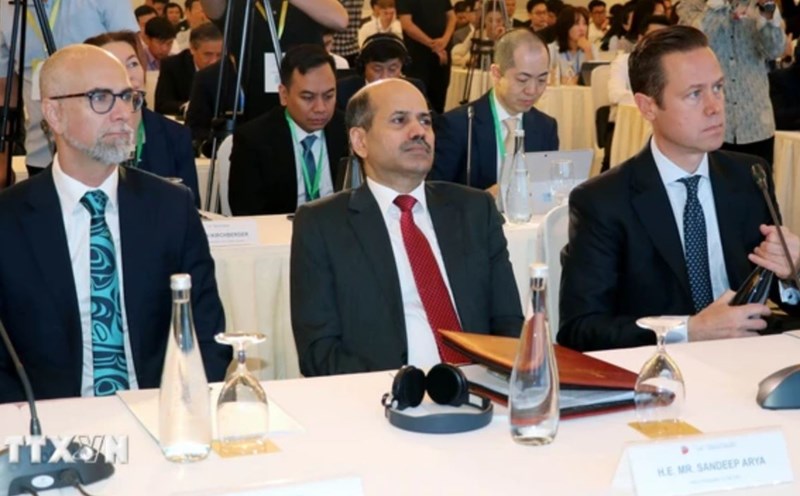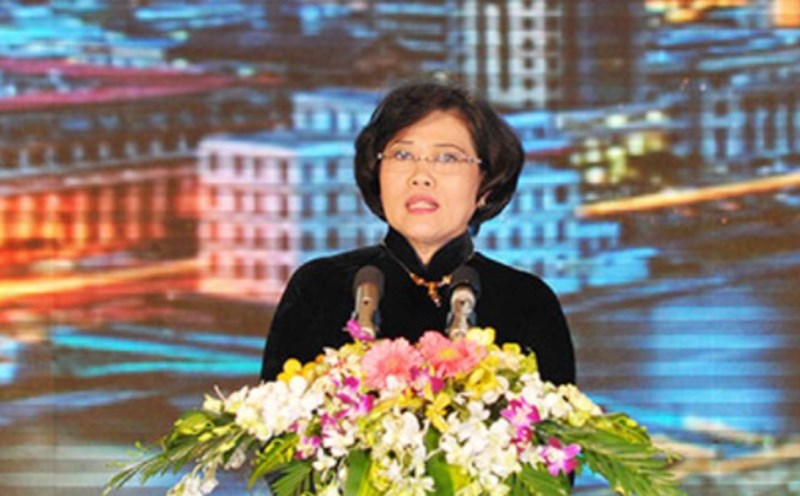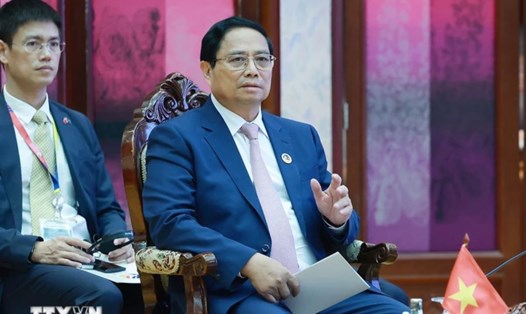Acting President of the Academy of Diplomacy, Ambassador Dr. Pham Lan Dung said that after many years of discussion, the East Sea remains a hot spot, with territorial disputes and differences in maritime claims, along with the militarization of the region. However, she said that like islands that stand firm against the wind and waves, the parties must remain steadfast in their efforts to pursue peace and diplomacy; and like the process of polishing a stone, progress in diplomacy requires time, patience and optimism.
Deputy Minister of Foreign Affairs Do Hung Viet said that competition among major countries today is not simply to compete for territory, sea areas, resources, to control trade, technology and military capabilities, but more importantly to influence the views and visions that will shape the international system in the future. Therefore, the Deputy Minister affirmed that compliance with widely recognized principles and standards is the foundation for ensuring international peace and stability.
The Deputy Minister reaffirmed the importance of the 1982 United Nations Convention on the Law of the Sea (UNCLOS) as the comprehensive legal framework governing all activities at sea and oceans and the basis for maritime actions and cooperation at national, regional and global levels.
The Deputy Minister said that Vietnam's nomination of the first candidate, Associate Professor, Dr. Nguyen Thi Lan Anh, Director of the Institute of the East Sea, Vietnam Diplomatic Academy, to the position of Judge of the International Tribunal for the Law of the Sea (ITLOS) for the 2026-2035 period reaffirms Vietnam's readiness to contribute to the activities of ITLOS; at the same time, it demonstrates a strong and steadfast commitment to UNCLOS in particular and to the United Nations Charter and international law in general.
Mr. Sidharto Reza Suryodipuro, Director General of ASEAN Cooperation, Ministry of Foreign Affairs Indonesia, Head of SOM ASEAN Indonesia affirmed that the East Sea is Indonesia's top priority; emphasizing the central and important role of ASEAN will ensure the East Sea is a sea of peace, stability and prosperity.
Senator Tim Watts, Co-Minister of Foreign Affairs of Australia, affirmed that Australia supports a peaceful, stable and prosperous region that complies with international law and ensures free and unimpeded maritime routes; wishes to strengthen cooperation with partners, expand maritime cooperation, and protect marine resources and environment in the region.
Mr. Niclas Kvarnström, Director General for Asia-Pacific, European Union External Action Service (EEAS), affirmed that ASEAN is the focus of the approach to the region, wishing to strengthen bilateral cooperation with ASEAN member countries such as the Philippines and Vietnam.
Most delegates stressed the need for ASEAN to maintain its “centrality” and unity, while promoting multilateral diplomacy and international law. Scholars also discussed common challenges to international maritime safety and freedom, noting that the Red Sea and the South China Sea have many similarities. Israeli scholars said that 10 years ago, no one thought that non-state actors could change the game in the Middle East as they do today, saying that this is a lesson that Southeast Asia should not take lightly.











